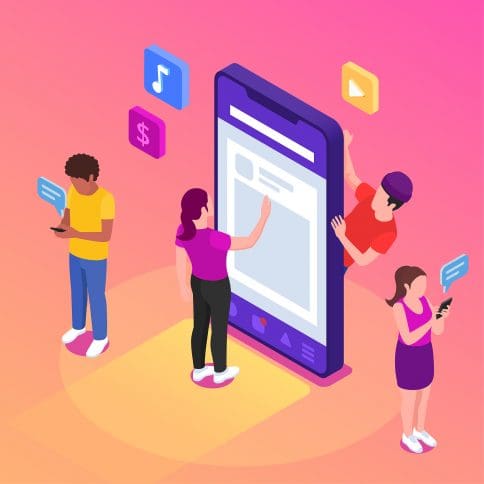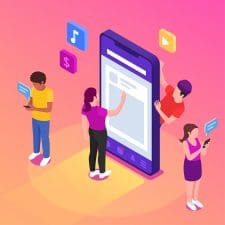
Are you tired of reading about how millennials have entered and evolved the workplace for years? Good—because a new generation is taking the world by storm and shaking up the workplace: Gen Z.
Who is Gen Z exactly? This category is made up of people born between the mid-90s and mid-2000s.
Also on Mediabistro


In the past several years, they’ve either entered the workplace or have prepared to—while also up against a pandemic, rapid technology changes, and more. They’ve taken these experiences and brought them into their ideal work preferences, demanding things like mental health days and flexible hours.
“These younger generations are cracking the code and they’re like, ‘Hey guys turns out we don’t have to do it like these old people tell us we have to do it,’” said Colin Guinn, 41, co-founder of the robotics company Hangar Technology. “‘We can actually do whatever we want and be just as successful.’ And us old people are like, ‘What is going on?’”
As the working world continues to evolve with new elements like remote work and flexibility, here’s how Gen Z is shaking it up.
They want to find meaning in their work
According to a recent Firstup survey, Gen Z longs to find meaning in their jobs—and they want to know what’s expected of them right off the bat. They are more likely to stay at a company that prioritizes being a good global citizen. Also, they are more likely to take an interesting job that pays less as opposed to an uninteresting job.
They are more versed in technology
Gen Z is the most tech-savvy generation yet. Not only can they bring their tech skills to their job, but some companies are even creating reverse mentoring programs in which Gen Z employees mentor senior execs.
Jake Poses, who leads product for video, creators & events at LinkedIn shared:
“I’m obsessed w/ this genius Mentoring Program at The Estée Lauder Companies Inc. where Gen Z employees mentor senior execs to help them understand the culture and perspectives of the younger generations who are among their most important customers.”
They are demanding more non-traditional benefits from companies
Recent research also shows that Gen Z doesn’t just want flexibility in their next role, they also want non-traditional benefits including mental health days, financial wellness programs, and healthy company culture.
They are more skeptical than previous generations
This generation arrived up against many major shifts in the economy, a pandemic, rapid changes, and misinformation. They’re moving into the workplace with this experience and therefore value trustworthiness and transparency within their company. In other words, you can expect them to tolerate nonsense less than previous generations.
Each generation communicates and operates differently. Gen Z is a prime example of how changes in the world will reflect changes in the workplace—and the people who make it up.










